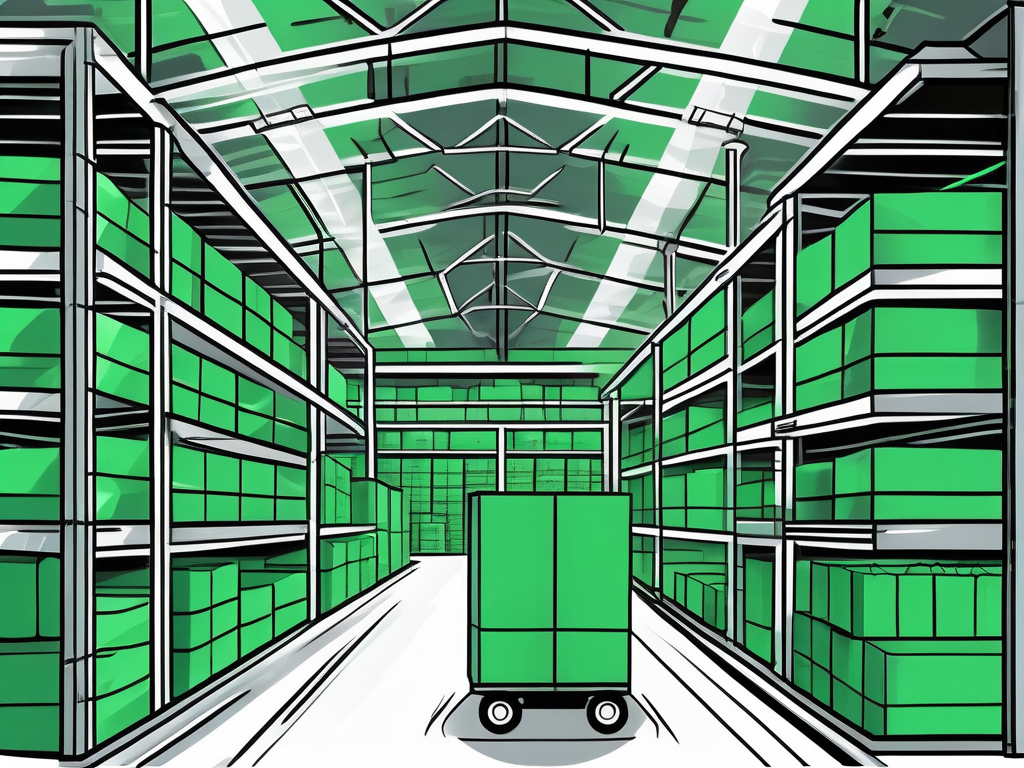Share this
The Ultimate CBD Fulfillment Guide: Part Two
by Christie McLeod on May. 31, 2022

Choosing the right partner can make or break your company’s logistics, customer service, and repeat purchases. Using a fulfillment center like Shipfusion frees you from navigating the fulfillment landscape with zero stress. Below are some insights on how Shipfusion can take your business to the next level.
Legally Shipping CBD Products
Hemp-derived CBD products are generally much more widely recognized, accepted, and legalized than their THC-containing counterparts. Still, the distribution of products that contain CBD is pretty strictly regulated, and there are specific components to consider regarding whether or not your suppliers’ CBD is actually legal for you to ship.
Potency
Before you ship your CBD, you must ensure that the products you’re putting your business name on do not contain more than 0.03% THC. Also, you have to have the capacity to verify, in writing, the amount of THC in the product you’re shipping. Remember, as long as you’re working with the right fulfillment center, you will not have (or should not have) any potency issues.
Plant Origin
You cannot ship your CBD products if you’re unsure of the plant’s origin, and the CBD in your products must be extracted from hemp and not marijuana plants. Most businesses that specialize in shipping CBD work with a supplier, so you’ll have to keep in close contact to ensure that your products consistently hit the correct THC level standards.
For some companies, their THC comes from synthetic sources. If this is the case for you, it’s best to speak with an attorney concerning the best way to go about shipping your products out to customers.
Licensing
The licensing component of the selling and shipping CBD puzzle is not one you want to lose. If you grow your plants yourself, you must be a licensed grower, and if you work with a supplier, they have to have a valid license to grow. You can’t ship random CBD products from friends and family that experiment with growing and making infusions.
You and your supplier can face legal issues and shut down if you choose to operate without a license or ship products with illegal amounts of THC. As a licensed grower, your state government will oversee your hemp crop, ensuring that all production and extraction processes are controlled and legal.
Testing
To expand a bit on the CBD testing procedure, it’s crucial to know that you cannot test your products at home or your supplier and then send them out without third-party input. A professional testing company must test every CBD product you sell to document the chemical makeup of your products, including the amount of THC present in each.
Third-party testing is a great place to start when it comes to shipping your CBD products, as it’s often a prerequisite to determining the potency and plant origin.
Additional CBD Legalities
Now that we’ve covered the legal restrictions surrounding preparing your CBD products to ship, you should know a bit about CBD marketing. Every business needs to market its products successfully to make sales and see eventual growth. Failure to follow CBD marketing rules could result in penalties on a state or federal level.
FDA regulations may pose a concern for many CBD suppliers and fulfillment centers, as the drug classification of the marijuana plant makes things fuzzy in the legal department. If you’d like to sell your CBD online, you might wonder about your options for legal marketing and advertising.
Legal CBD
Whether or not CBD is legal depends on which state you reside in and what products you intend to sell. You can sell only hemp-derived CBD products online, so stop right there if you plan to place CBD extracted from marijuana plants for sale. Certain states prohibit the sale or consumption of CBD, so if you’re selling online, you have to be fully compliant with every states’ stance on CBD.
You can do this by implementing product-specific shipping restrictions in your online store. Most web-hosting services have this option, and it’s not difficult to set up.
Rules and Regulations
You have to follow the rules and regulations regarding the sale of CBD that extend outside the realm of the shipping process. The Farm Bill, passed in 2018, legalized the production and distribution of hemp in the United States.
However, you cannot ship hemp-derived CBD with more than 0.03% THC, and CBD produced from the marijuana plant is legal for recreational use in only 15 states when sold through licensed marijuana markets. We cannot stress how imperative it is to do your localized research when selling CBD products, both in-person and online. The legal status of CBD is utterly inconsistent across federal and state levels.
NEXT WEEK: HOW TO CREATE A SOLID CBD BUSINESS PLAN
You can’t launch any business without a solid business plan, and CBD is no exception to that rule. In fact, your business plan for a CBD specialty company has to be near foolproof to keep you, your suppliers, and your customers safe. You don’t want to miss any potential obstacles that may come your way, so thorough preparation is vital.
Shipfusion sets your business on autopilot and combines flexible, reliable fulfillment with powerful, real-time technology. Shipfusion has multiple fulfillment centers across the US and Canada– making it easy to manage your eCommerce business. For more information on how to set your business on autopilot, contact one of our fulfillment specialists today.
Share this
You May Also Like
These Related Articles

2016 eCommerce Fulfillment Trends Witnessed So Far!

10 Wholesale Fulfillment Trends Set to Transform the Industry in 2025

Fulfilling the Unfulfilled: Common eCommerce Fulfillment Mistakes
- April 2025 (18)
- March 2025 (26)
- February 2025 (26)
- January 2025 (37)
- December 2024 (16)
- November 2024 (23)
- October 2024 (22)
- September 2024 (27)
- August 2024 (9)
- July 2024 (8)
- June 2024 (5)
- May 2024 (8)
- April 2024 (8)
- March 2024 (6)
- February 2024 (6)
- January 2024 (5)
- December 2023 (3)
- November 2023 (3)
- October 2023 (5)
- September 2023 (4)
- August 2023 (2)
- July 2023 (1)
- June 2023 (4)
- March 2023 (2)
- October 2022 (1)
- September 2022 (5)
- August 2022 (4)
- July 2022 (7)
- June 2022 (4)
- May 2022 (4)
- April 2022 (6)
- March 2022 (2)
- February 2022 (1)
- January 2022 (3)
- December 2021 (2)
- November 2021 (4)
- October 2021 (2)
- September 2021 (5)
- August 2021 (4)
- July 2021 (4)
- June 2021 (3)
- May 2021 (2)
- April 2021 (3)
- March 2021 (3)
- February 2021 (3)
- January 2021 (2)
- December 2020 (4)
- November 2020 (2)
- October 2020 (4)
- September 2020 (2)
- July 2020 (5)
- June 2020 (4)
- May 2020 (2)
- April 2020 (2)
- March 2020 (4)
- February 2020 (1)
- December 2019 (1)
- May 2018 (1)
- March 2018 (2)
- February 2018 (3)
- January 2018 (3)
- November 2017 (3)
- July 2017 (4)
- March 2017 (3)
- February 2017 (5)
- January 2017 (3)
- December 2016 (4)
- November 2016 (6)
- October 2016 (6)
- October 2015 (1)
- September 2015 (1)
- June 2015 (3)
- May 2015 (3)
- August 2014 (1)
- July 2014 (1)
- March 2014 (1)
- February 2014 (1)